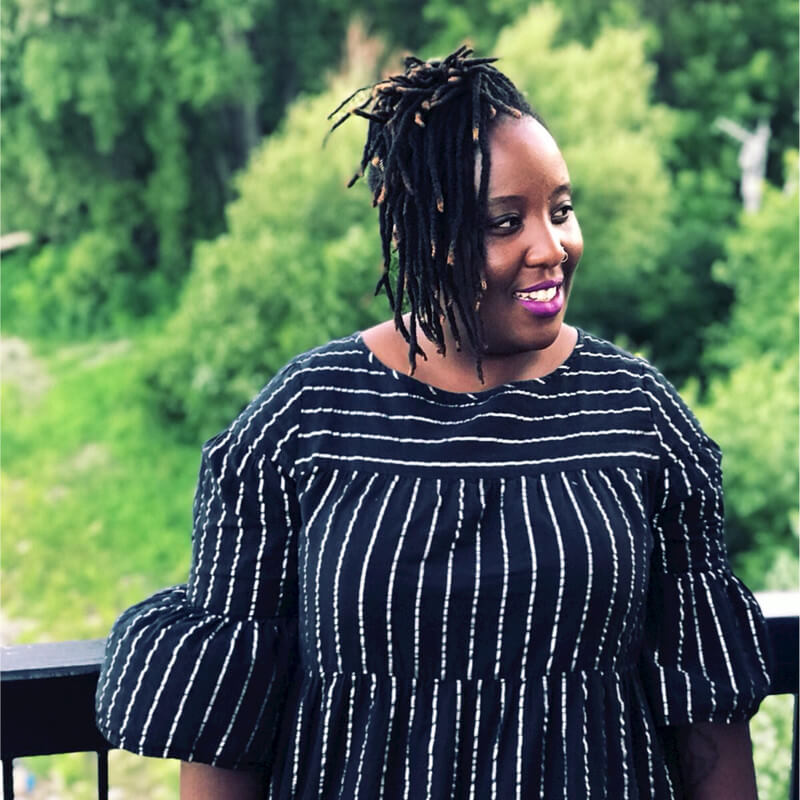Data Scientist & Activist Sam Sinyangwe at the 2018 Knowledge to Action Exchange
Data tells a story.
This theme pops up repeatedly in Sam Sinyangwe’s work. Sam is a racial justice activist, data scientist, and policy analyst. For the last few years, he’s been documenting and tracking police violence in America where more than 1,000 people are killed every year by police. Racialized groups, especially Black people, are more likely to experience fatal encounters with police.
To understand the trajectory of Sam’s work, we first have to talk about Mike Brown, a young Black man who was shot and killed by a police officer in 2014 in Ferguson, Missouri. Mike Brown’s killing marked a pivotal moment; his death was followed by weeks of protests and demonstrations across the country. Protestors called attention to police violence experienced by Black people in particular.
Paradoxically, the story being told in mainstream media around the killing of Mike Brown was that deaths due to police violence are rare. Sam and his collaborators wanted to challenge this story – to do that they needed evidence. They started collecting data and documenting police violence, eventually capturing an estimated 98% of police killings that had occurred since 2013 in their database. They used this data to tell full and complex stories about the impact of police violence on people’s lives, challenging the narrative being told in mainstream media and calling for system-wide reforms. Years later these early actions have led to the development of key digital mapping tools (e.g. Mapping Police Violence) and the development of the police reform initiative Campaign Zero.
There are stories that can’t be told credibly without the right data to back up the telling. The story of police violence in America is one of them. High-quality data not only tells the story, it also engages the audience. Data can also be a powerful advocacy tool; it can be used to critique and challenge existing systems and structures.
On October 25th, Sam will be one of the keynote speakers at YouthREX’s Knowledge to Action (KtA) Exchange (this year’s theme is “Data + Stories for Action!”). This multi-day event brings youth sector stakeholders from across the province of Ontario together to share and engage with practice-relevant knowledge from research, youth work practice, and lived experience. Sam will reflect on using data for racial justice. Exchange participants will have the opportunity to learn about using data to bring issues to life.


